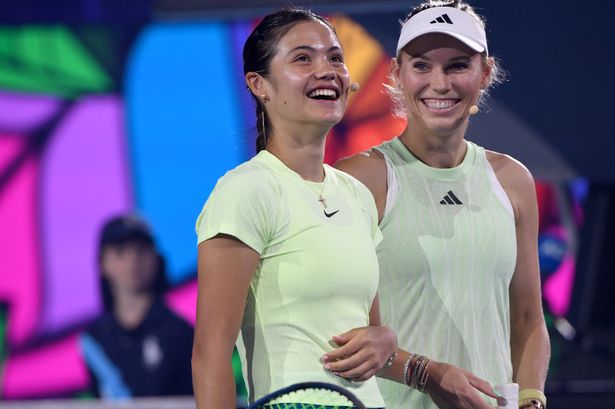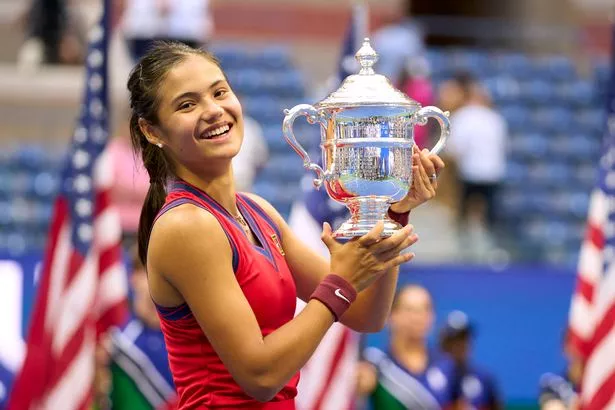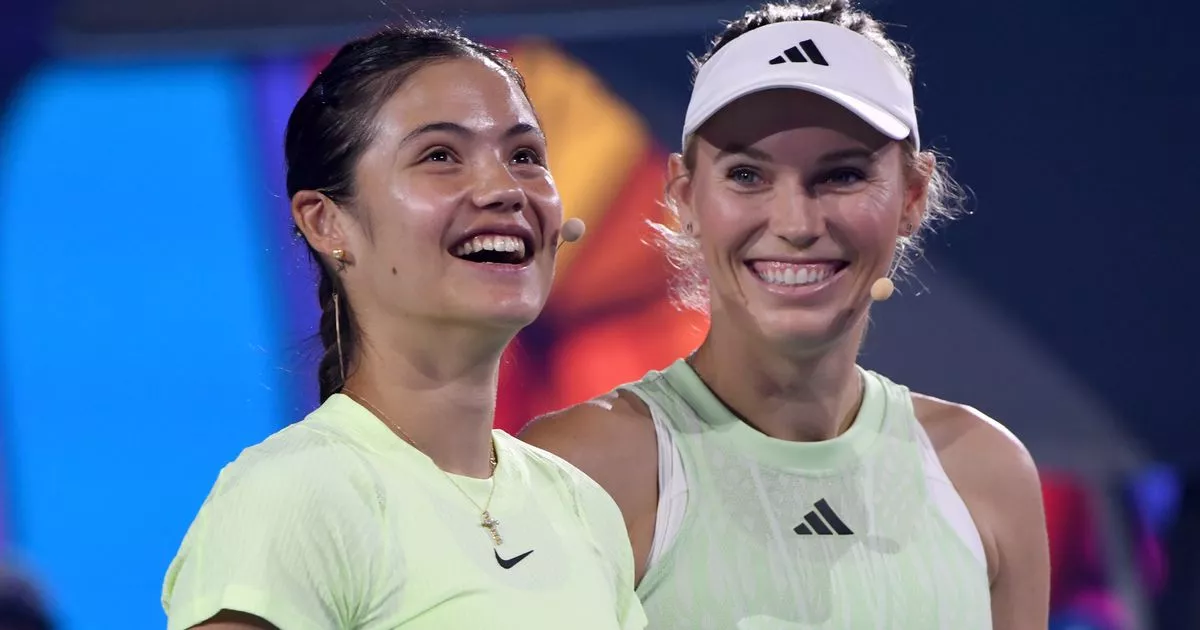Emma Raducanu became the first-ever player to win a Grand Slam as a qualifier during her remarkable run at the 2021 US Open
Fasika Zelealem Senior Sports Reporter
13:00, 24 Nov 2025Updated 13:01, 24 Nov 2025
 Raducanu has been backed by Wozniacki
Raducanu has been backed by Wozniacki
Caroline Wozniacki leapt to Emma Raducanu’s defence after John Isner suggested her extraordinary US Open victory wasn’t as impressive as another recent tennis upset. The British sensation made history in 2021 by becoming the first qualifier ever to capture a Grand Slam crown at Flushing Meadows.
The 23-year-old, then just a teenager, stormed through 10 consecutive matches without dropping a single set to claim the championship in a thrilling final against Leylah Fernandez.
Widely regarded as one of tennis’s most remarkable achievements, the sport witnessed another shock result last month when Valentin Vacherot became the lowest-ranked player ever to win a Masters title at Shanghai.
The Monaco-based player defeated Alexander Bublik, Holger Rune and Novak Djokovic before beating his cousin Arthur Rinderknech in the final to secure the trophy. Whilst both Raducanu’s and Vacherot’s triumphs captured the imagination, Isner argued the latter’s achievement surpassed the Brit’s Grand Slam success.
The retired American player, who reached a career-high ranking of world No. 8, made the controversial statement on the Nothing Major Show after Vacherot’s win. He said: “I think it is more impressive, yes. (For Raducanu) it’s a bigger story because it’s the US Open, but I think this is more improbable than what she did.”
READ MORE: Emma Raducanu boosts net worth as British star’s 2025 tennis earnings revealedREAD MORE: Emma Raducanu photos with new man and ‘lovers’ comment spark dating rumours
In backing Vacherot, Isner highlighted that the Frenchman had secured just one main-level victory by the age of 26 before his impressive Shanghai performance. Yet Wozniacki, appearing on the podcast, pushed back firmly, insisting that claiming a Grand Slam title trumps any other accomplishment.
“No matter how you slice and dice it. That’s better than winning a 1000… When you just talk about the result, the end result, i think winning the US Open is better than winning a 1000 Shanghai,” said the 2018 Australian Open champion.
Content cannot be displayed without consent
The 35-year-old stepped away from professional tennis in 2022, with her final match ending in a third-round Australian Open loss to Ons Jabeur. However, the Dane reversed her retirement decision and made her comeback in 2023, competing at notable tournaments including the US Open, Indian Wells Open and the Paris Olympics.
Wozniacki gave birth to her third child in July, and while she hasn’t officially announced her retirement, it’s uncertain whether she’ll return to competitive tennis. Raducanu has failed to reach the heights of winning the US Open title since that stunning night in New York and comparisons to that is something she admitted she still thinks about.
 Emma Raducanu stunned the world by winning the US Open in 2021(Image: Erick W. Rasco/Sports Illustrated via Getty Images)
Emma Raducanu stunned the world by winning the US Open in 2021(Image: Erick W. Rasco/Sports Illustrated via Getty Images)
Speaking to The Guardian in August earlier this year, she said: “It’s [comparisons to the US Open] something that never fully leaves you. I think it’s been four years now, I don’t think it’s fully gone away.
“Maybe in a few years, maybe when I’m older, more mature, but it’s hard to put that aside completely. It’s always in the back of your mind, but it’s more just being aware of those thoughts and then not letting it crash your day or ruin the work that you’re doing, and bringing it back to what I’m doing now, and the process.”
She revealed that she had tried therapy in what has been a life-changing few years for the Brit but said she stopped after just two sessions. “I’ve tried. I’ve tried,” Raducanu admitted. “I’ve obviously been recommended to do it a lot, with what I went through.
“It was something that not many people, well actually, no one has gone through, which is probably the reason I did two sessions and I stopped. I was like: ‘Look, these guys, they don’t relate.’ And, to be honest, no other athlete has done what I’ve done, so I don’t know why I’m taking advice from them. So I was like: ‘OK, well, the only person who can help me is myself.’”
